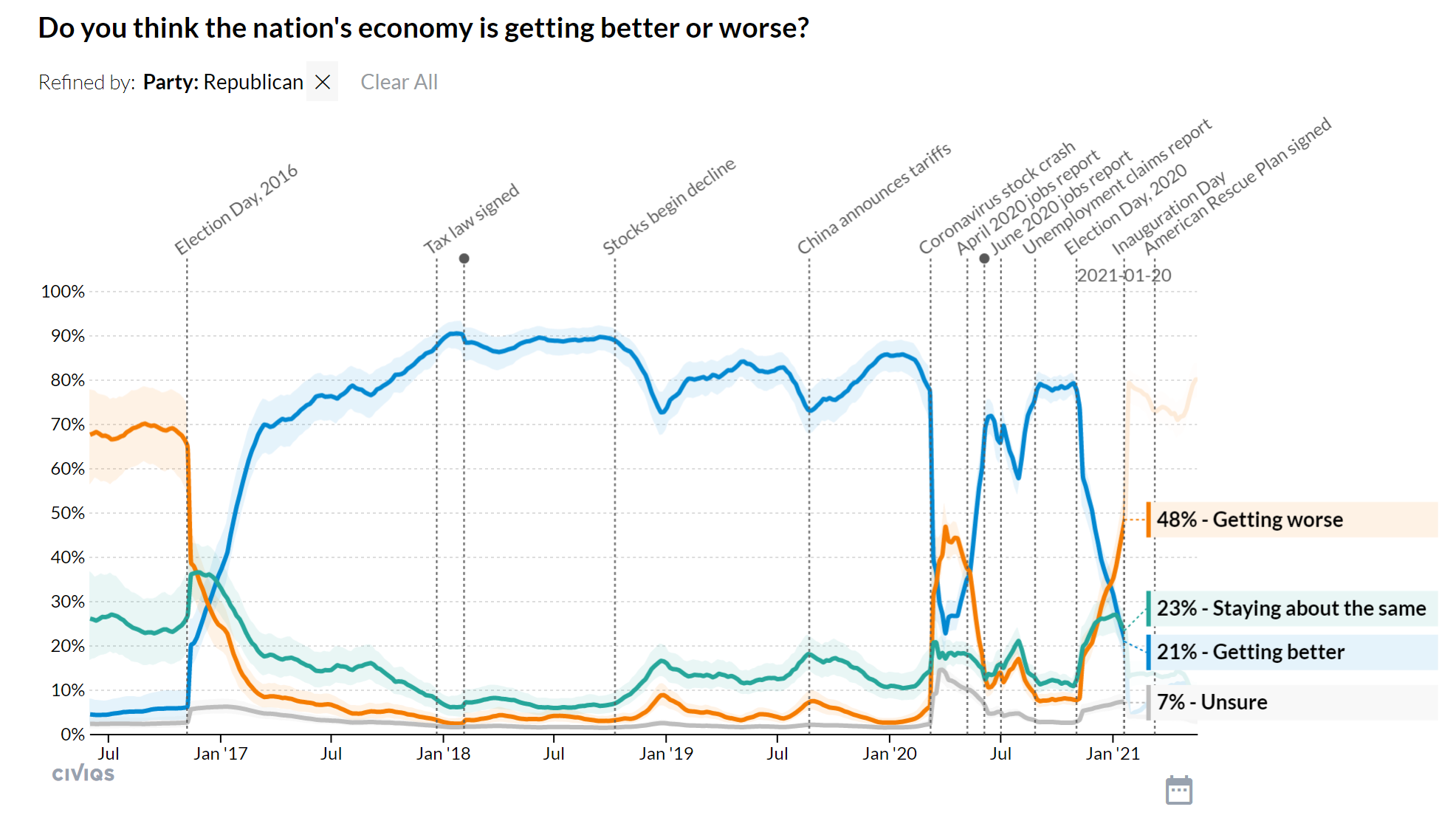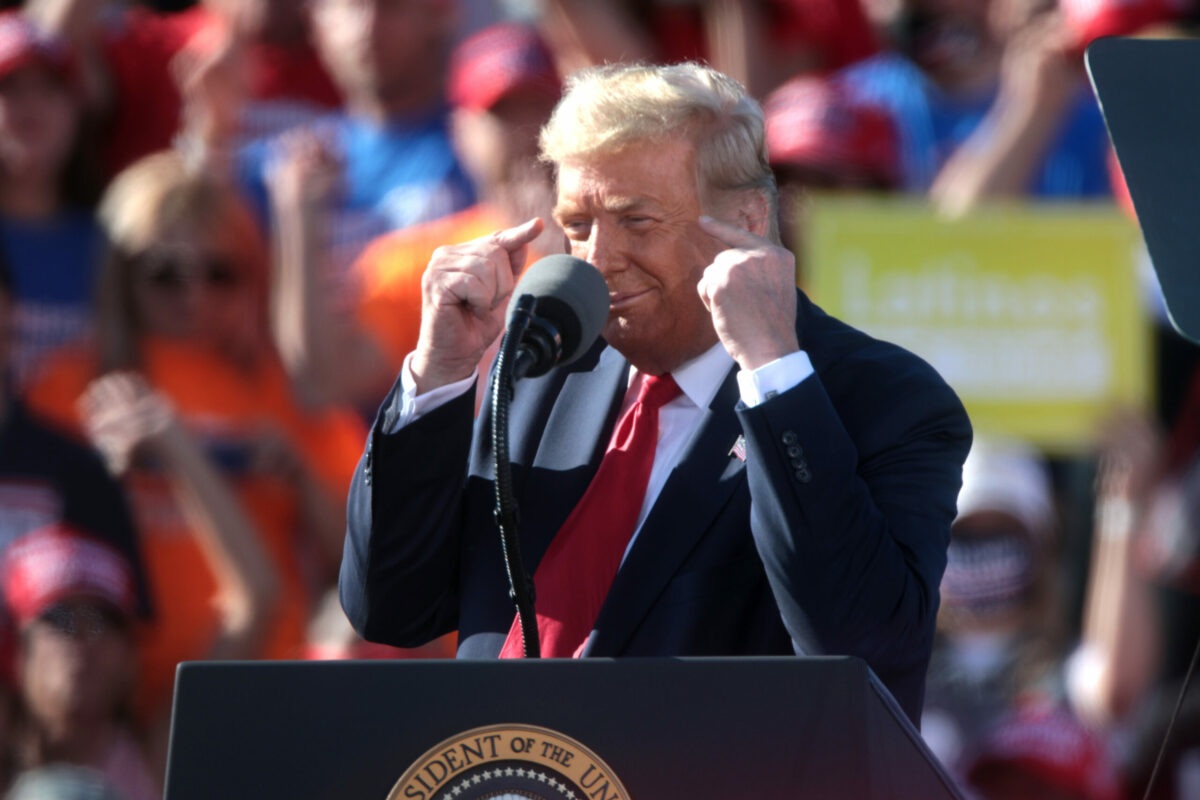Following the 9/11 attacks, the main question on all Americans’ minds was who was responsible. Once it was determined to be al-Qaeda, the second question that demanded an answer was how U.S. intelligence agencies had failed to anticipate such a large-scale violent act. Shortly thereafter, both houses of Congress overwhelmingly approved the establishment of an official commission to investigate. In the House of Representatives, the bill containing the authorization passed overwhelmingly, 366 to 3.
Before he signed the bill into law, then-president George W. Bush opposed the 9/11 Commission, likely out of concern that its work would potentially make for some embarrassing revelations about his young administration. But public support for an investigation was so great that the president relented, after pushing for a few changes.
Bush’s fears were not entirely unfounded — the commission did ultimately make a number of findings that reflected poorly on the executive branch — but policymakers of both parties and the public realized that both Republicans and Democrats had made mistakes. In the end, Bush was not personally blamed by the public for the catastrophe and went on to win re-election in 2004, becoming the last Republican since to win the national popular vote.
Twenty years after 9/11, there is no such consensus in Congress when it comes to investigating the attempted coup on January 6, when supporters of Donald Trump stormed the U.S. Capitol with the intent of stopping the certification of the election. While the death toll and devastation of this event were decidedly less dramatic than on 9/11, the implications for our democracy are arguably much more dire.
Initially, Republicans in Congress argued that a commission was just what was needed instead of impeaching the then-president for a second time. “These facts require immediate action from President Trump — accept his share of responsibility, quell the brewing unrest and ensure that President-Elect Biden is able to successfully begin his term,” Rep. Kevin McCarthy, the House GOP minority leader said on Jan. 13. “And the president’s immediate action also deserves congressional action, which is why I think a fact-finding commission and a censure resolution would be prudent.”
Since that time, McCarthy and his Republican colleagues, responding to pressure from Trump and the conservative establishment, have completely reversed course. This week, House Republicans voted overwhelmingly against a bill to establish a bipartisan commission to fully investigate the insurrection.
Ultimately, the reason why GOP members voted as they did is obvious. Many of the individuals arrested for their role in the riot have explicitly said they believed that Trump had invited them to Washington to overturn the 2020 presidential election.
Given such circumstances, the ousted former president and his most ardent supporters have been at pains to publicly blame anyone else for the rioters’ demands to “hang Mike Pence” and to force Congress to reject the states’ official vote tallies. Republicans in Congress rightly assume that a commission may well hold Trump accountable and that this would reflect poorly on them.
Where George Bush’s concerns about a 9/11 commission were perhaps an overabundance of political caution, today’s GOP is right to be worried, especially since several far-right members like Reps. Marjorie Taylor Greene (R-Ga.) and Paul Gosar (R-Ariz.) have been revealed to have close associations with Capitol invaders.
Rep. Mo Brooks (R-Ala.) spoke at a Trump-led rally before the riot and told attendees that “today is the day American patriots start taking down names and kicking ass” in order to overturn the election. Greene and others have also been accused of taking insurrectionists on personal tours of the building beforehand to help them plan the attack. These and many other allegations could prove very damaging if officially confirmed by a January 6 commission, given the formal subpoena powers it would have.
To help distance Trump and congressional Republicans from the riot that their lies provoked, right-wing public figures immediately began trying to blame the Capitol insurrection on Antifa, decentralized leftist activists with no national organization who have become the latest focus of wild-eyed Republican paranoia. The day after the riot, Trump-supporting pundits began trying to pin the conflagration on a Utah man named John Sullivan who had once been involved with Antifa groups in Salt Lake City and Portland, Oregon.
But the Sullivan deflection immediately collapsed after it was revealed that Sullivan had been ejected months before the riot from the Antifa groups with which he had tried to associate. He was also found to have connections to the right-wing extremist Proud Boys organization. No other people with current or past leftist associations have been put forward as riot instigators and since then, Fox News Channel and other major right-wing media seem to have abandoned trying to find left-wing scapegoats.
Despite the complete collapse of their narrative, right-wing media figures and politicians have not abandoned it. Their audience certainly has not. A Reuters-Ipsos poll released Friday found that 54 percent of Republican adults surveyed agreed with the statement that “the Jan. 6 riot at the Capitol was led by violent left-wing protestors trying to make Trump look bad.” Only 30 percent of GOP respondents said they disagreed. Another 16 percent said they were unsure.
That a majority of Republican voters would claim to believe such flagrantly false assertions raises a number of serious questions about the stability of American democracy, among them whether it’s possible to have a shared politics if a large percentage of citizens believe things that are easily proven to be untrue.
It’s certainly a valid question to ask, but it may not be the correct one. That’s because conservatives’ disconnect from reality may be even more complex than a mere belief in obviously incorrect ideas.
As I’ve noted previously, American conservatism has been trapped in an intellectual death spiral since the Biblical literalism on which it is based has become almost universally recognized as untrue. Even if they won’t admit it, almost everyone knows that the Noah flood story never happened and that there is no evidence that humans are descended from a single incestuous family headed by Adam and Eve.
But rather than admit that Christian fundamentalism is an untrue, modern distortion of the non-literalism that prevailed among ancient Jews and Christians, the American religious right has decided to believe in factual relativism, the idea that everything is just an opinion and that “alternative facts” can be just as good as the real things — especially if they point to the larger “truth,” that non-fundamentalists are evil and must be stopped.
Alternating between convenient lies and ignorant delusions has been a crucial part of American conservatism for decades, but under Trump — who has built his entire career on the George Costanza maxim that “it’s not a lie if you believe it” — this mindset appears to have become much more common. New research is beginning to show that when self-identified Republicans claim to believe something obviously untrue, they are doing so because they have been told to believe this by their political leaders.
A study released in 2017 by Michael Tesler, an associate professor of political science at the University of California–Irvine, found that conservative Americans were originally more likely than liberals to believe that human pollution was causing global climate change but that their opinions began to shift based upon political messaging from conservative elites.
Tesler followed up on his study earlier this month in an essay for FiveThirtyEight in which he referenced polling from the firm Civiqs which found that before the 2020 election, more than 70 percent of Republican respondents consistently believed the economy was getting better, a number that declined drastically to only 21 percent when President Joe Biden was inaugurated on Jan. 20. Actual economic data, meanwhile, showed the economy had improved during this time.
It was the inverse of how GOP respondents felt about the economy at the beginning of Trump’s term. After believing overwhelmingly that things were getting worse before he was in office, they turned on a dime to say it was getting better once he had.
Even now, as vaccinations against Covid-19 have increased drastically and economists are projecting strong economic growth, 80 percent of Republicans still think the economy is getting worse, according to Civiqs data. Among Democratic respondents, partisanship seems to have been less of a factor, even though pessimism in the economy did increase more once Trump took office.

A 2018 research paper by Brian F. Schaffner of the University of Massachusetts–Amherst and YouGov managing director Samantha Luks found even more evidence that Trump supporters respond directly to his lies by parroting them back to pollsters.
According to Schaffner and Luks, when Republican respondents to a survey were shown unlabeled photos of Obama’s 2009 inauguration and Trump’s 2017 festivities, they correctly noted that more people were in attendance at Obama’s event. But when when shown labeled versions of the same pictures, Republican respondents claimed that Trump’s event had greater attendance, an apparent direct response to his very first lie as president that his event was the most-attended in American history.
It will be difficult, if not impossible, to determine where conservative delusion and deception begin and end. Nor are we likely to be able to measure to what degree Trump has influenced his supporters’ conceptions of reality. The jury remains out.
In any case, there is no doubt that die-hard Republicans are taking their cues from right-wing information sources like Fox News, OAN, and the vast empire of fundamentalist Christian media that has been promoting one lie after the next. While it may be too much to expect politicians to tell inconvenient truths to their supporters, social and legal pressure on the owners of these misinformation machines would certainly provide a good start to putting all Americans on the same intellectual page. The success of lawsuits filed by election machine companies Dominion Voting Systems and Smartmatic suggests that there are methods already at hand to curb right-wing falsehoods.
In the specific case of Trump’s lies about January 6, Congressional Democrats would do well to keep the issue front and center in the minds of Americans. Part of the eventual commission’s mission should be to evaluate the deceptive assertions made by conservatives eager to deflect blame for what happened. As an independent commission, they should explicitly examine and reject the Antifa lie and any other false claims made about the rioters, such as the outrageous assertion by Rep. Andrew Clyde (R-Ga.) that invaders against whom he personally put up blockades were merely engaged in a “normal tourist visit.”
Forcibly and repeatedly using official government powers to investigate and proclaim the truth in the face of outrageous lies may seem like too obvious of an endeavor, but it is worth the effort. GOP elites must be made to confront their obvious and contradictory lies. If Antifa really did spark the invasion, shouldn’t Republicans want to prove this?
George Orwell once said that the “the most effective way to destroy people is to deny and obliterate their own understanding of their history.” If that’s correct, then perhaps the most effective way to save people is to tell them the truth about it.
